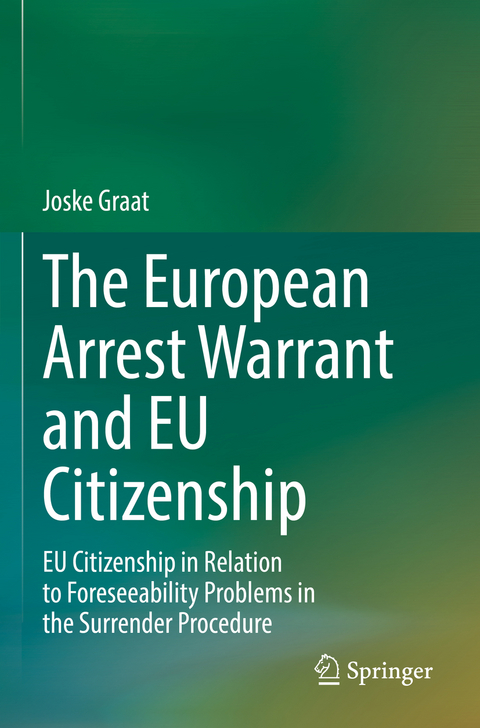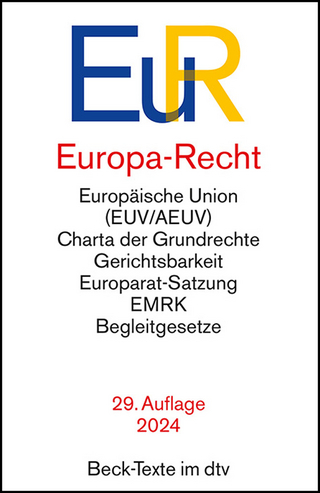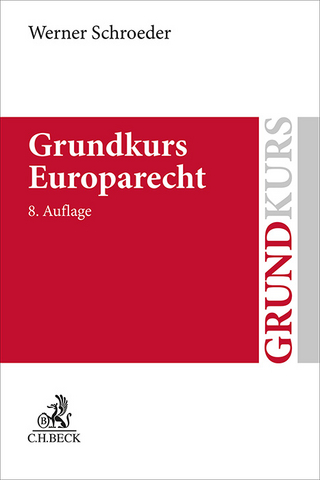
The European Arrest Warrant and EU Citizenship
Springer International Publishing (Verlag)
978-3-031-07592-6 (ISBN)
This book offers an in-depth analysis of the relationship between EU citizenship, the European arrest warrant (EAW), and the legality principle. It focuses on the role of the EAW in relation to two foreseeability problems with which EU citizens - especially those who exercise free movement rights - could be confronted. These problems concern the foreseeability of specific national criminal laws at the time of the offense on the one hand and forum decisions on the other. The first part of the book addresses the extent to which these foreseeability problems and the role of the EAW therein are viewed as legality problems at the EU level and in three national legal orders (the Netherlands, Germany, and England and Wales).
In turn, the second part of the book critically examines the current scope and content of the legality principle in light of the EU's objective to offer its citizens an Area of Freedom, Security and Justice (AFSJ) in which both safety and free movement are guaranteed. As EU citizens often encounter foreseeability problems when exercising their free movement rights, it is argued that they should be protected by a transnational framework of fundamental rights. The book subsequently makes recommendations for a transnational interpretation of the legality principle, one which fits the normative context of the AFSJ as described in Article 3(2) TEU. On the basis of the evolution of EU citizenship over time, the book also develops two EU citizenship narratives and explains how they could contribute to transnational fundamental rights protection and a solution to foreseeability problems. With regard to arriving at concrete solutions, the book offers recommendations for EU legislation that could adequately remedy foreseeability problems and the role of the EAW therein.
Joske Graat is Assistant Professor in European Criminal Law and Utrecht University in The Netherlands.
Introduction.- Setting the scene.- The legality principle: its link to the EAW, jurisdiction and forum choices.- The FDEAW: safeguards against unforeseeable jurisdiction claims and the risk of arbitrary forum decisions?.- The Dutch legal order: the views on the two complications and their link to the EAW.- The German legal order: the views on the two complications and their link to the EAW.- The legal order of England and Wales: the views on the two complications and their link to the EAW.- The syntheses: to what extent is a triangular link between the EAW, the legality principle and the risk of unforeseeable jurisdiction claims and arbitrary forum choices recognised on the EU and national level?.- The intergovernmental perspective: an explanation for the state-focused interpretation of the legality principle and lack of attention for the problems with which EU citizens can be confronted.- Does the intergovernmental shoe still fit? The rise of analternative perspective: transnational cooperation in a shared legal order.- A transnational legality principle and its possible effect on the EAW.- EU citizenship as a vehicle towards a transnational legality principle: two possible narratives.- Conclusions and recommendations.
| Erscheinungsdatum | 12.09.2023 |
|---|---|
| Zusatzinfo | XI, 408 p. |
| Verlagsort | Cham |
| Sprache | englisch |
| Maße | 155 x 235 mm |
| Gewicht | 633 g |
| Themenwelt | Recht / Steuern ► EU / Internationales Recht |
| Schlagworte | Conflicts of jurisdiction • EU citizenship (in the AFSJ) • Jurisdiction (overlapping jurisdictions) • The EAW • Transnational fundamental rights protection • Transnational judicial cooperation |
| ISBN-10 | 3-031-07592-7 / 3031075927 |
| ISBN-13 | 978-3-031-07592-6 / 9783031075926 |
| Zustand | Neuware |
| Haben Sie eine Frage zum Produkt? |
aus dem Bereich


